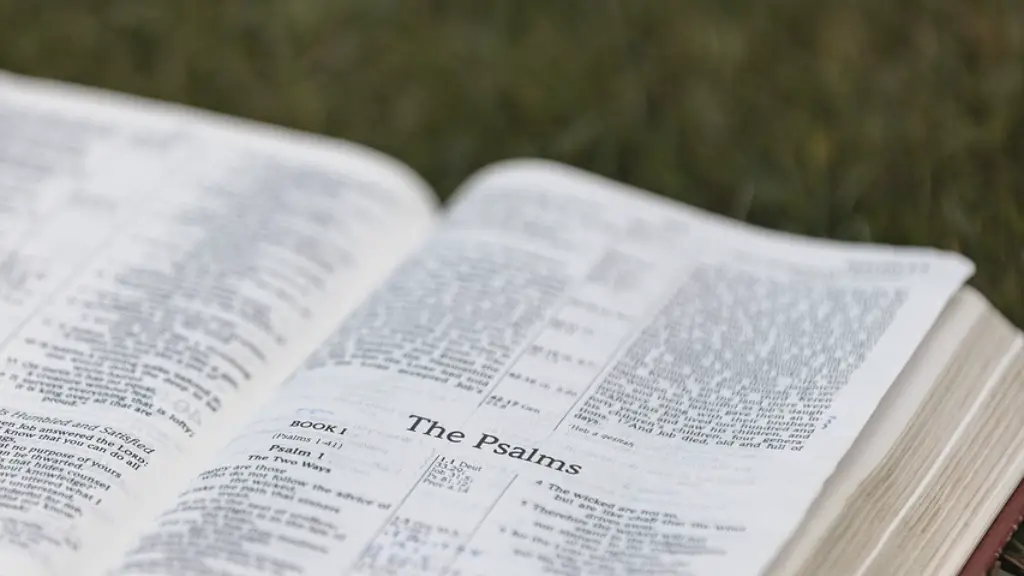The Book of Enoch is not part of the accepted Biblical canon, and though it is thought to have been written prior to the first century BC, it was not categorically or definitively excluded from the Bible until the Council of Nicaea in the fourth century AD. Since then, the Book of Enoch has been seen as outside of the traditional groupings of inspired books. It is held up by some as an acceptable source of scriptural truth, whereas others believe that it is fiction, apocryphal, or even the work of a heretical sect.
The debate about the authority of the book has been around for millennia, and it is not altogether clear why the Church fathers chose to reject it. Some have suggested that the Book of Enoch contains passages that conflict with other Scripture. Others believe that the authors of the books of the Bible knew of the Enochic writings and were aware of their contents, and chose to exclude them with the intention of deliberately eliminating the teachings that were found within.
Still other scholars posit that the early Church fathers chose to eliminate the Book of Enoch because its content was deemed to be too controversial or difficult to accept. It has been suggested that the book may even have contradicted the religious practices and beliefs of the Christians at the time, as some passages describe a divine being that is different from the Christian trinity. One of the elements of Enoch which may have been particularly troubling to the Church fathers was its inclusion of ideas about angelology, a subject which the Church often preferred to leave unaddressed.
The contents of the Book of Enoch make it a particularly interesting and tantalising relic of the ancient world, and its rejection by the Church for so long has made it all the more so. While some of the contents are undoubtedly factual, others are certainly mythical and conspiratorially speculative. Amongst its pages there are a number of stories about angels in the Biblical narrative, and some passages which have been considered blasphemous by Christians, particularly in the Islamic world. It has also been suggested, however, that the authors of the New Testament books were aware of and influenced by the text of the Book of Enoch.
Not all experts agree that the contents of the Book of Enoch should be dismissed entirely. It has been put forward as an important source of knowledge, containing information which may be of original and unique value to Bible study and Christian theology. Whether or not the Book of Enoch should be accepted as part of the Biblical canon is likely to remain a matter of personal interpretation and opinion.
Lost In History
The fact that the Book of Enoch was cast out of the Bible and lost to history for so long has meant that much of its content and significance is still relatively unknown. For centuries it was only available in fragments, making it difficult to properly study and interpret the text. In recent years, however, the reemergence of complete texts of Enoch has facilitated new avenues of inquiry and study.
These texts have enabled scholars and theologians to better understand how the material in the book impacted the ancient world, and how its influence may still be felt today. Many questions remain unanswered regarding the exact nature and purpose of the book and what it means for the way that people perceive the Bible. However, it is certain that the wider implications of the book are still largely misunderstood, and what it could tell us about early biblical text.
What is clear is that the Book of Enoch paints a very different picture of what was going on in the ancient world than the one that is usually presented. Far from being an obscure work which was rejected in antiquity, the Book of Enoch appears to have had a considerable influence on a range of theological and religious thought, both within and beyond the Bible.
Diverse Interpretations
Interpretations of the Book of Enoch vary considerably, bringing together evidence and ideas from under diverse sources. Some believe that the text provides unique and essential insight into early Christianity, while others dispute its relevance and suggest that it is merely a compilation of mythical tales.
The real value of the Book of Enoch lies in its willingness to explore the religious and spiritual worlds without fear or preconceived ideas, and to open up possibilities which were previously unavailable to theologians and biblical scholars. By looking at the text in its context, it is possible to gain a more nuanced understanding of the world in which it was composed and the culture that gave rise to it.
It is clear that the Book of Enoch is an intriguing and potentially powerful book which throws up a range of questions about the Bible and religion. Whether or not it should be accepted as part of the canon is a matter of opinion, but its content certainly deserves to be discussed and considered.
Intrigue And Mystery
The Book of Enoch has undoubtedly captured the imagination of many people throughout its long and varied history. The fact that it has been shrouded in mystery and has been rejected by mainstream Christianity has made it a subject of great intrigue.
For those seeking to understand more about the Bible and early Christianity, the Book of Enoch provides an opportunity to delve into a different realm of religious thought, and it is therefore likely to remain a source of interest for some time to come.
Though its canonicity has been contested over the centuries, it is undeniable that the Book offers an insight into how some early scholars approached the study of Scripture. Though the exact nature and importance of the book may be debated, what is certain is that its contents cannot be ignored, and its value remains as potent as it did in ancient times.
A Fascinating Relic
The Book of Enoch has survived for thousands of years, and in that time has assumed an almost mythical status amongst academics and theologians. Its complex and sometimes enigmatic nature means that it is unlikely to ever be truly understood by modern scholars, but it provides a fascinating glimpse into a period of religious history which is often overlooked.
The text offers an enormous amount of insight into how early scholars viewed the Bible and the surrounding religious culture, and has the potential to reveal a great deal of information about the religious practices of the ancient world.
It is unlikely that the debate about whether or not the Book of Enoch should be included in the Bible will ever be resolved, but there is no doubt that its contents are worthy of continued consideration and meditation.
Potentially Vital Information
The fact that so much of the information contained within the Book of Enoch has been lost to history serves to make it all the more intriguing. Though the exact author of the book remains unknown, it is clear that it contains potentially vital information about the ancient world, and its teachings could prove to be of huge value to those wishing to gain a deeper understanding of the Bible and early Christianity.
The Book of Enoch is, above all else, a relic of bygone era which has survived the ravages of time and still serves to captivate many modern scholars and believers. Its appeal spans across the religious spectrum and its enigmatic nature means that it is unlikely to ever be fully understood.
The debate about the authority of the book has been an ongoing one throughout history and is likely to remain so in the future, with some schools of thought embracing its contents and others rejecting it as ungodly, influenced by demons, or simply irrelevant.





